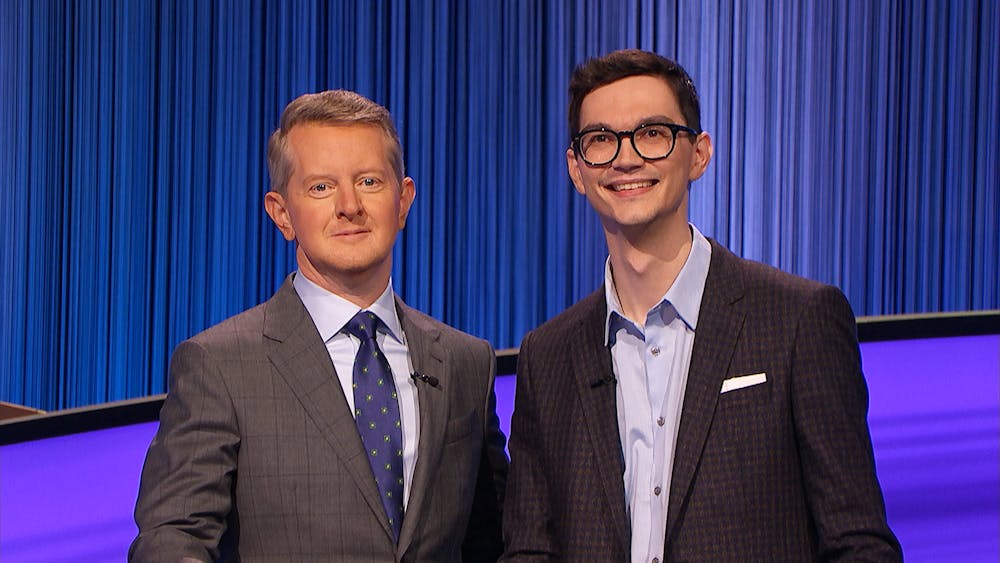Professor Marko Saric, an antsy person by nature, said when he was competing on the set of Jeopardy, he felt like he was back in his room watching the show.
“I didn't even realize that there was an audience watching me or that there were cameras on me,” Saric said. “For some reason, I just felt calmer when I was on stage.”
Saric was on Jeopardy April 18 and continued on April 19. He was surprised some of his students watched the show as well, he said.
“I made the assumption that, ‘Oh, they're college kids, they don't care about Jeopardy,’ but they were totally stoked about it,” Saric said.
Game shows have always been in Freshman Andrew Cox’s family. Now, Cox is the host of Elon’s game show Win Stuff.
“When I came here and went to the club fair, I saw a booth for Win Stuff and the producers were there and they asked if I wanted to audition to host so I decided why not and everything fell into place,” Cox said.

As host, Cox enjoys meeting new people across campus who go on the show, he said. While Cox himself does not play trivia games, he enjoys the atmosphere of the game show.
“I always love it when they're really competitive and into it,” Cox said.
For Saric, being a professor did not necessarily translate to skills helpful for the game show. He instead prepared by looking through the J! Archive, a website created by fans with every single answer that has been on Jeopardy. From there Saric would go to Wikipedia to read up on things he didn’t know, he said.
“A common misconception that everyone says is that Jeopardy asks about anything, but that's really not true,” Saric said. “If you watch the show enough, it'll come back to the same few things.”
This is part of what Saric enjoys about trivia, as it is the opposite of his experience as a professor. When he attended graduate school he would go in-depth on small topics, but with trivia, he practiced by learning a wide-range of topics, he said.
“Maybe that's kind of why I like it,” Saric. “There's that contrast, with my actual work. Just sort of combing Wikipedia and trying to gather the greatest breadth of knowledge is kind of a refreshing transition out of my daily job.”
Something Saric did not expect was how fast-paced the show actually moves. The show is not cut down for time after production, Saric said.
“I was not anticipating the fatigue,” Saric said. “I played three games and I was wiped the entire day. It was only like an hour and a half of mental strain, but I couldn't do anything the rest of the day.”
Even with this mental strain, Saric was able to perform better under pressure than he anticipated. Being under pressure sharpened his decision making skills, he said.
“When I was on stage, I would get questions, right that I didn't realize I knew,” Saric said. “And so when I was watching the episode back, just in my own home, I would not know an answer, but myself on TV would know the answer and I'm like, where did we even get that piece of information?”


